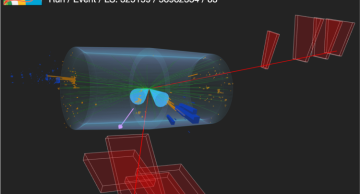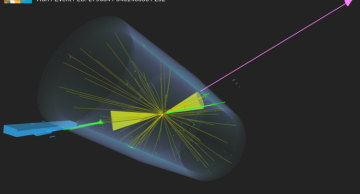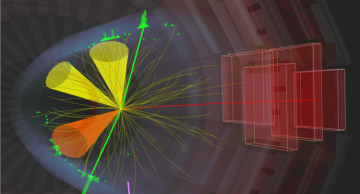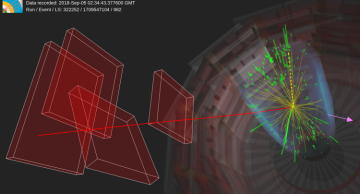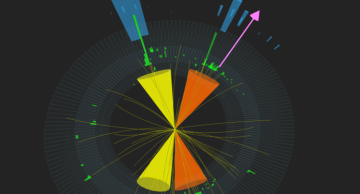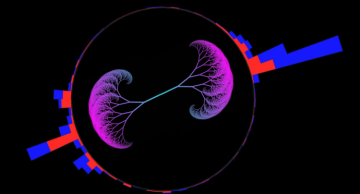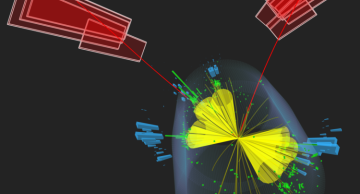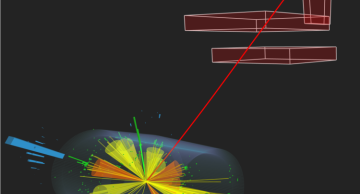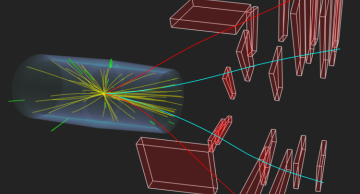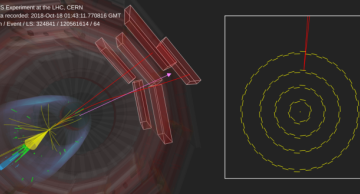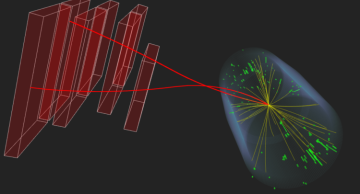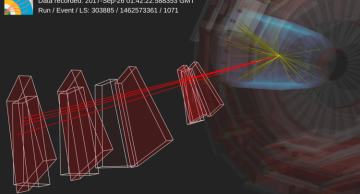The standard model (SM) of particle physics is by far the most successful theory describing the experimental observations of particle interactions. Most of the SM interactions preserve the “flavor” of the elementary particles, with the exception of…
News
|
ajafari |
Physics
The top quark is now a full grown adult - it’s been almost 30 years since its discovery at Fermilab! - and being the heaviest brick of the Standard Model it plays a big part in the Universe. It is a bit like a celebrity in the world of particle…
|
ajafari |
Physics
In the thrilling world of particle physics, our mission at the Large Hadron Collider (LHC) is to explore the mysteries of the universe by conducting experiments and pushing the boundaries of the Standard Model (SM). The SM is a wonderful theoretical…
|
ajafari |
Physics
Bosons are elementary particles in the field of particle physics, distinguished by having a spin quantum number with an integer value. They play a crucial role in mediating the fundamental forces of nature, including the electromagnetic force and…
|
ajafari |
Physics
The standard model (SM) of particle physics, is the most successful theory describing the behaviour of elementary particles and their interactions. However, the SM has a few serious shortcomings, such as the Higgs boson mass problem. The mass of the…
|
ajafari |
Physics
Quarks and gluons are the elementary particles that make up protons and neutrons, which are in turn the building blocks of the nucleus of every atom. Gluons are the particles that mediate the strong nuclear force, which is responsible for “gluing”…
|
fbaldass |
Physics
The standard model of particle physics (SM) is one of the most precise theories ever conceived, capable of predicting certain quantities with up to 14 digits of precision. The LHC is a marvel of modern experimental physics and precision…
|
nstathak |
Physics
CMS observed the simultaneous production of four top quarks, one of the rarest physics processes ever observed at the LHC, opening the door to detailed searches for physics beyond the Standard Model (SM).
Ever since its discovery at the…
|
ajafari |
Physics
For over two millennia, people have wondered about the diversity of the material world, asking questions like “what are things made of?”. In the early decades of the 20th century we figured out that all things are composed of electrons, protons…
|
ajafari |
Physics
Dark matter is mysterious. In some ways, we know a lot about it, including its average density in the universe and upper limits for how strongly the dark matter particles might interact with each other or with “normal” Standard Model particles. In…
|
ajafari |
Physics
Experimental particle physics is like a game of hide and seek. Physicists endeavor to seek what is hidden by exploring all the possibilities. The hidden truths, which interpret the rules of nature, lie within elementary particles and how they…
|
ajafari |
Physics
The amount of data that CMS has collected so far is truly astounding, thanks to the very large number of proton-proton collisions that the LHC has provided, over more than a decade, and to the large rate of events that CMS can record. And yet, even…

